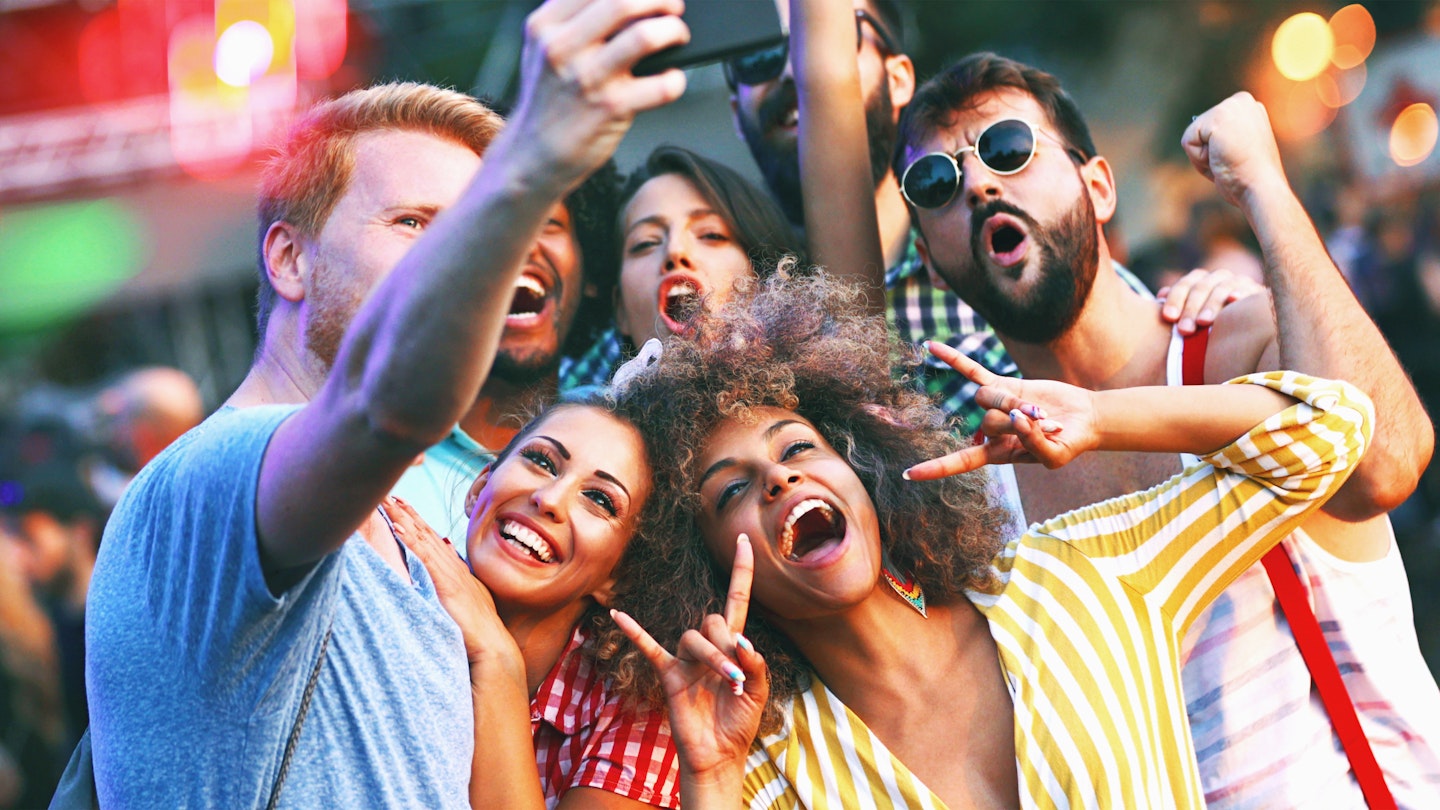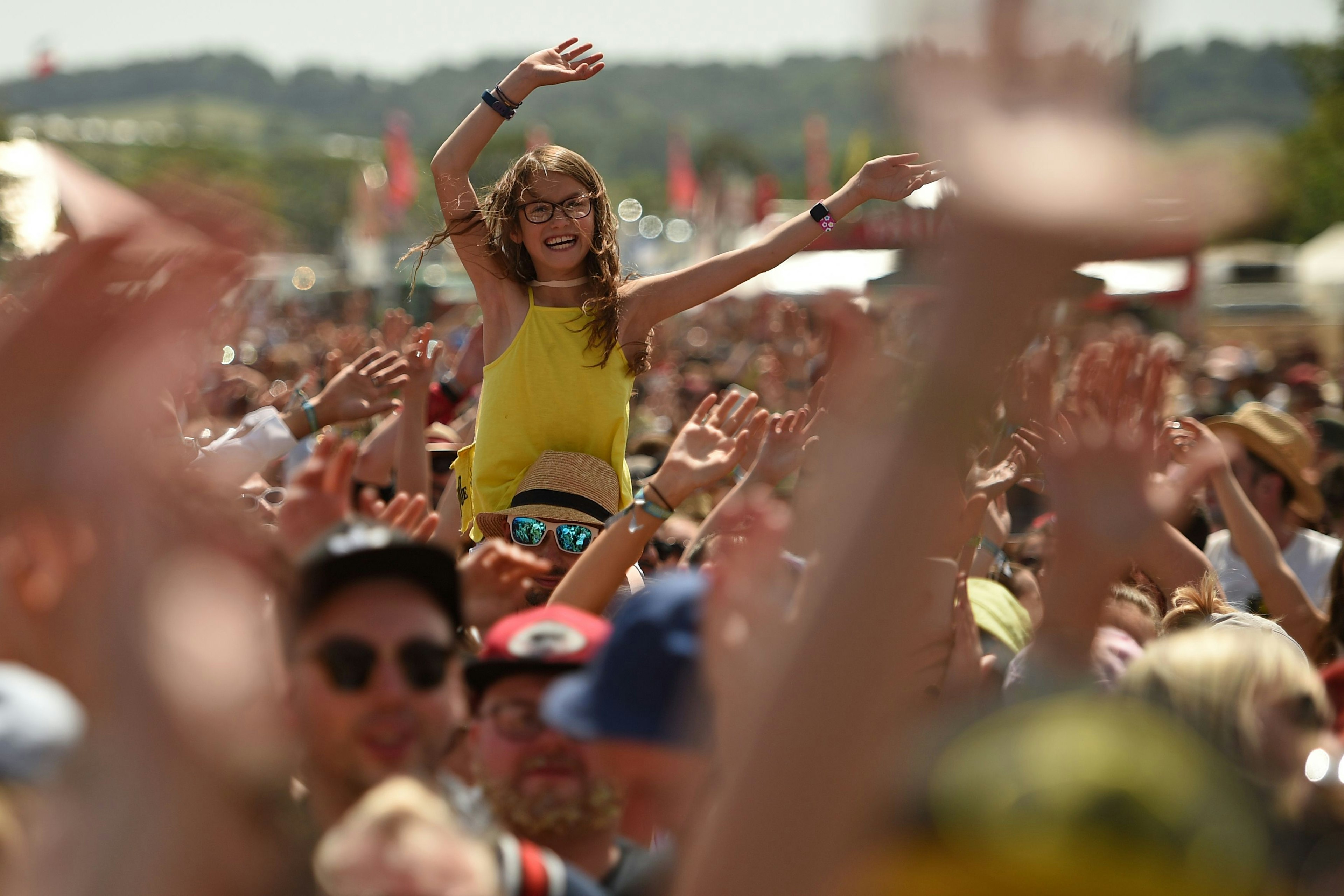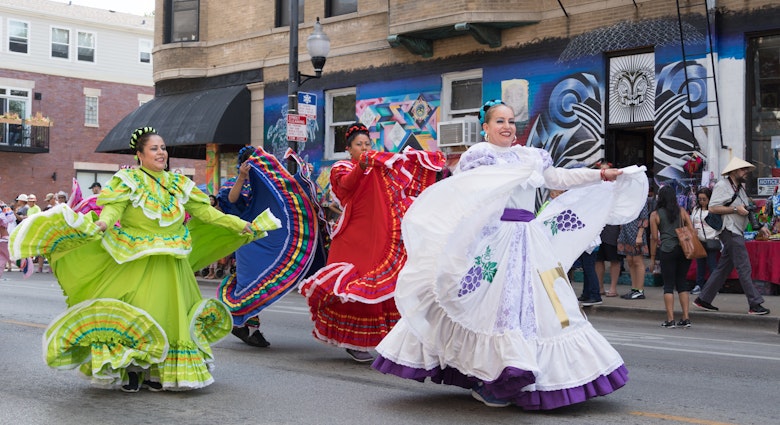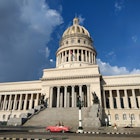
Will festivals happen in 2021? Here's what we know so far

Feb 12, 2021 • 6 min read

Will festivals return in 2021? ©Getty Images
The cancellation of Glastonbury and Coachella have cast doubt over the return of festivals to the northern hemisphere in 2021. However, some organizers are still optimistic. Bonnaroo and Lollapalooza are being announced for late August and early September. And Spain's Primavera Sound has not yet cancelled its festivals in Barcelona, Porto and LA. So what's happening? With most of Europe in lockdown and infection rates still high in the US, can festivals and large cultural events still go ahead?
What festivals have been cancelled in 2021?
Glastonbury and Coachella, arguably two of the biggest music festivals on the planet, are cancelled for the second year in a row. Dr Cameron Kaiser, public health officer for Riverside County, where Coachella is held, said the event will not be taking place because COVID-19 rates are still too high. "If COVID-19 were detected at these festivals, the scope and number of attendees and the nature of the venue would make it infeasible, if not impossible, to track those who may be placed at risk," he said.

Burning Man organizers have not yet determined if the festival will take place in Black Rock City this year after taking it online in 2020, and raising a successful fundraising campaign to keep the festival going. "It's impossible to say right now if Black Rock City can happen in 2021," the event's Associate Director of Communications, Dominique Debucquoy-Dodley said in a statement. "We want you to know we’re doing everything we can to be ready if the stars align. In fact, we’re trying to help the stars get there," he added, while noting that organizers are monitoring the situation daily to help Burning Man "move forward safely". Meanwhile Wonderfruit, Thailand's answer to Burning Man, has yet to confirm whether it will be able to welcome 20,000 festival-goers to Pattaya this year.
Mardi Gras in New Orleans is slimmed down this year with no parade, though residents are decorating houses instead of floats to bring some cheer to the city. Rio's glittering Carnaval was rescheduled for July, but organizers put the kibosh on celebrations citing the city's spiralling infection rates. Similar spring festivals in the Caribbean, including Trinidad & Tobago's Carnival (the country's biggest cultural event) and Costa Rica's Limón and Puntarenas festivals, are also off the cards for 2021.
What festivals are still planning to go ahead?
Many of the year's major live music events are still scheduled for late summer and fall. Bonnaroo Music Festival, normally held in June, is looking to go ahead on Labor Day weekend in Tennessee. Also scheduled for the tail end of the year are Governors Ball, Riot Fest and Aftershock. New York's Afropunk has yet to cancel its Brooklyn festival, while Chicago's Pitchfork Music Festival is planned for September, though dates and line-up have not yet been revealed.

In Europe, Lolapalooza Paris is scheduled for June 17, while its Stockholm festival has not yet cancelled plans for the weekend of July 3 and is moving forward with ticket sales. Spain's Primavera Sound is pushing ahead for a June festival, after organizers successfully held a COVID-safe trial festival in Barcelona in December without social distancing. It also plans to host a satellite festival in LA in September, and a Porto outing in June, with headline acts including Tyler the Creator, FKA Twigs, Tame Impala, Beck and Gorillaz on the bill. Belgium's big dance festival Tomorrowland hasn't pulled the curtain down on its event in July, though — like all live events this year — it depends on public health guidelines.
In the UK, the Isle of Wight festival is scheduled from 17 June, with organisers tweeting: "we’re continuing to work behind the scenes… and hope to have more news for you soon.” The UK’s biggest rock festival, Download, is selling tickets for its festival in June, with System of a Down and Kiss listed as performers. Wireless festival (2 to 4 July), and the Reading and Leeds festivals (August) are also seemingly going ahead for now.
Ireland's Longitude in Dublin has announced Kendrick Lamar, ASAP Rocky, Megan Thee Stallion and Doja Cat among the first round of acts for its July festival. And one of the country's biggest parties, Electric Picnic, has not officially cancelled plans for 2021. However, Professor Luke O'Neill, from the School of Biochemistry and Immunology at Trinity College, Dublin says it seems very unlikely there will be any festivals in 2021. "It's impossible to predict," he tells Lonely Planet. "I would more optimistic for 2022 – the vaccination campaign should clearly be showing benefits by then."
How will festivals change?
Faced with the prospect of missing out on the chance to sprinkle our faces with glitter and party with our friends for the second year running, we're keen to find out what's in store for festival-goers when these starry-eyed gatherings are given the green light. Mercedes Carnethon, Professor of Preventive Medicine at Northwestern University Feinberg School of Medicine, says she is looking forward to getting back there, but while we're closer to a return to 'normal', there are still plenty of unknowns. What she'd like to see continue at large events, including festivals, is the use of face masks and limited capacity.

"Based on what we know today, we can’t get rid of face masks and capacity limits in public spaces," Professor Carnethon tells Lonely Planet. "These disease mitigation steps are going to be effective against transmission even as the viruses mutate and we learn more about whether the vaccines can manage the subtle changes to the virus that protect its viability."
Greg Towers, Professor of Molecular Virology at University College London says he believes the near future will be geared towards outdoor gigs, adding "I envisage that when they do start again, methods to reduce crowding and plenty of masks and sanitiser."
Professor Mark Jit, from the London School of Hygiene and Tropical Medicine, points towards the success of a German study (not yet peer reviewed). That study found a low risk of transmission with strong precautions wide spacing between seats, good ventilation, many entrances/exits, N95 masks worn by all, stewards ensuring rules were obeyed, though he notes that Germany's rate of infection was much lower at the time of the study last August. And when only moderate precautions were taken, the risk of transmission increased quite a bit.
Will the vaccine rollout make a difference?
The key to getting the good times rolling again is the vaccine, namely how effectively it's rolled out worldwide. Permitting big get-togethers too early will only lead to further lockdowns and could compromise the effectiveness of the vaccine by allowing it to spread in partially vaccinated communities, according to Professor Towers.

"This would be bad because we expect this to select virus variants that escape the current vaccine. So I think it’s going to be a while before mass gatherings are permitted and a long time before festivals look like those in 2019," he says. "I love festivals. I had VIP tickets to All Points East in 2020 and was gutted it was cancelled. So I for one am really looking forward to things getting back to normal."
You might also like:
Glastonbury guide: how to survive the iconic music festival
Afropunk Festival: a first-timers guide to Brooklyn's big party
Is this pop-up ‘vertical theater’ in the UK the future of performance venues?
Explore related stories



 Festivals & EventsCelebrate Havana's 500th anniversary at these renovated historic sites
Festivals & EventsCelebrate Havana's 500th anniversary at these renovated historic sitesOct 10, 2019 • 6 min read



 HistoryDiscover the 6 must-visit destinations, recommended by Black female solo travelers
HistoryDiscover the 6 must-visit destinations, recommended by Black female solo travelersJan 12, 2025 • 5 min read










